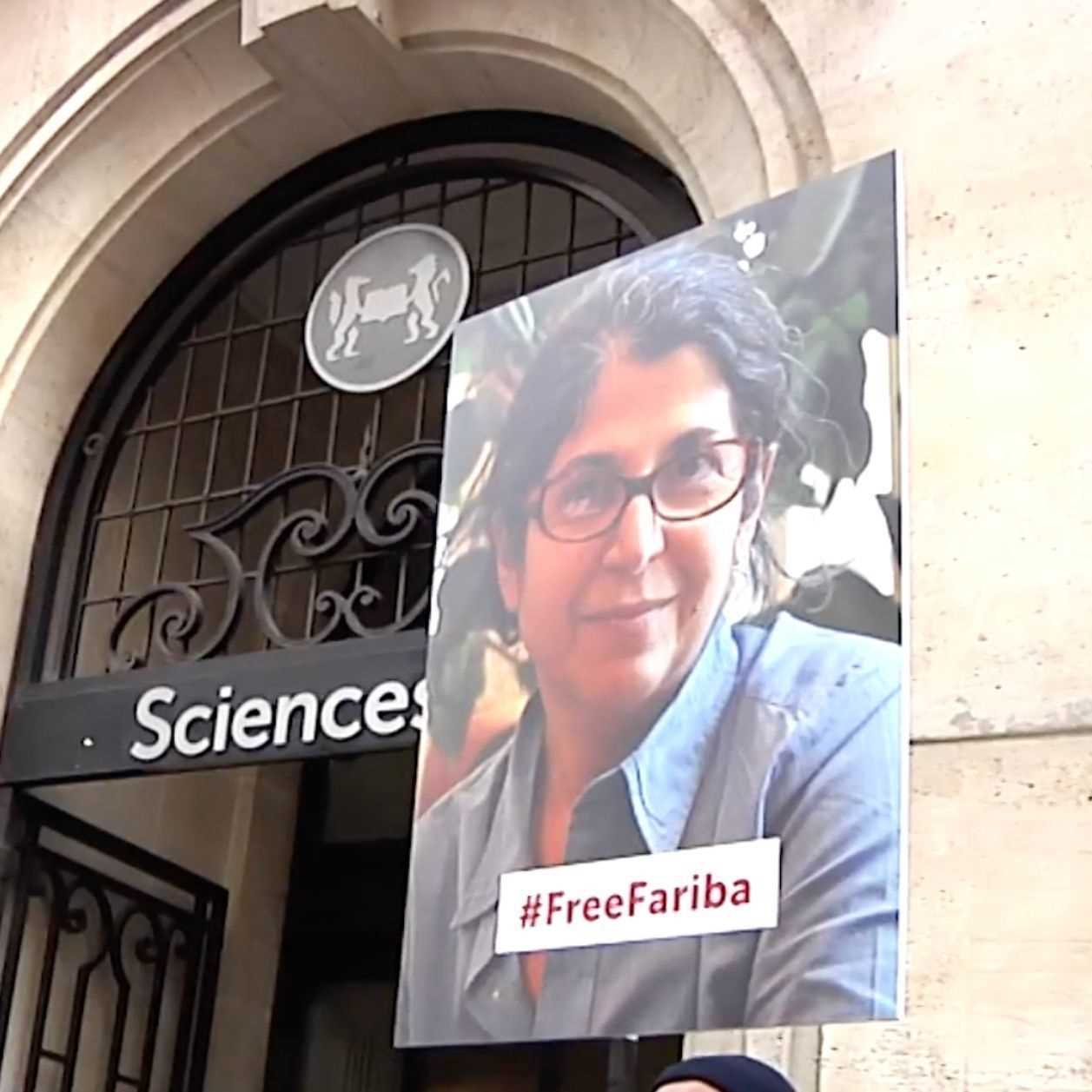Fariba Adelkhah, a Franco-Iranian anthropologist has been detained since June 2019 by the Islamic Republic of Iran. The researcher is accused of "endangering national security" and "propaganda against the Islamic Republic".
"The researcher is not an intelligence agent, any more than a James Bond or a trafficker." This sentence, taken from her open letter which she herself described as "letter of pain " to President Mahmoud Ahmadinejad, sums up the nightmare that lives Fariba Adelkhah, for nine and a half months. Specialist in social anthropology and political anthropology of post-revolutionary Iran, Fariba Adelkhah, was arrested in June 2019, in Iran. She is charged with "spying" by the Revolutionary Guards, the ideological army of the Islamic Republic of Iran. The latter do not recognize her dual nationality, so she cannot benefit from consular visits by French diplomats. What her colleague and friend sociologist Roland Marchal, arrested on the same day as her, can have.
Little information is transmitted. One fact is known, however, his hunger strike, which began on December 24, with one of his fellow prisoners, the Australian Kylie Moore-Gilbert, professor of Islamology at the University of Melbourne and specialist in Shiism. In France, his fellow researchers are mobilizing to obtain his release, in their eyes, Fariba Adelkhah is a "scientific prisoner ", and nothing else.
Only Fariba Adelkhah was present for what was to be the opening of the trial on March 3, but which was ultimately postponed to an unknown date. According to SciencesPo, the anthropologist was admitted to the Evin prison hospital on February 23 (where she is incarcerated in Tehran) because of a "serious deterioration in her health".
On March 21, an announcement fell. French researcher Roland Marchal is released, in exchange, Tehran says, for the release by France of an Iranian engineer threatened with extradition to the United States. But Fariba Adelkhah, meanwhile, remains incarcerated.
"It’s a great relief to see Roland Marchal again. A half happiness this being, because Roland returns alone. Fariba remains in prison ", commented Béatrice Hibou, member of the support committee at France Info.
Who is Fariba Adelkhah?
The "scientific prisoner" owes her recognition to her field investigations on subjects that have been little studied. His thesis, defended in 1990 and published the following year, "The Revolution under the veil "(Karthala), where she immersed herself in the feminine movements of Islamic Iran, is a perfect example.
Fariba Adelkhah was born in Iran, in the province of Khorassan (region on the border with Afghanistan), in 1959. She arrived in France in 1977 to complete her university studies in Strasbourg. A specialist in social anthropology and political anthropology in post-revolutionary Iran, she has been a researcher at CERI (Center for International Research) since 1993. Her early work focused on women and the Islamic Revolution. Fariba Adelkhah is also a member of the scientific committees of journals Iranian Studies and Review of the Muslim worlds and the Mediterranean.
In 2009, she retired from Iranian studies to work on cross-border migration with Afghanistan or the Gulf countries. But, the researcher revives her old research and she plunges again to "heart of the system ", studying the course of students of religion between the teaching centers of Qom (Iran), Nadjaf (in Iraq) or Lebanon.
His current research focuses on the circulation of Shia clerics between Afghanistan, Iran and Iraq.
Money change ?
For Hamid Enayat, journalist and specialist in Iran, whom we contacted, "the Iranian regime has never been punished for taking hostages, and now it uses it on another level, by capturing citizens of dual nationality, like the Franco-Iranian researcher Fariba Adelkhah, to force the French government to release the Iranian diplomat imprisoned in Belgium, Assadollah Assadi. The latter was arrested while delivering explosives for a bomb attack on the Iranian National Resistance Council rally in Villepinte near Paris in 2018. The same thing happened with the Iranian-British national, Nazanin Zaghari".
"The Iranian regime has never paid any price for these hostage-taking, which is why this trend has continued to this day. The Iranian theocracy has greatly benefited from the policy of appeasement vis-à-vis of his numerous hostage-taking carried out by European countries. Over the past 40 years, he has demonstrated his inability to comply with international law and standards. The uprising of the Iranian people in mid-November 2019 and early January 2020 has shown that the population rejects the religious dictatorship and calls for the establishment of a modern and democratic government. The only way for the international community to permanently eradicate these hostage-taking in the Middle East and in other parts of the world is to support the people of Iran, Iraq and Lebanon in their fight against this dictatorship nun and her subservient regimes", he concludes.
Following the long-awaited release of Roland Marchal, Sciences Po and the French authorities continue to do everything possible to ensure that Fariba Adelkhah is released, in an Iranian political context which, as everyone knows, is particularly complex. In addition, France maintains complex relations with Iran due to the Iranian nuclear crisis. Fariba Adelkhah’s Support Committee remains very concerned about his health, particularly in the context of the global COVID-19 pandemic which is severely affecting Iran.
